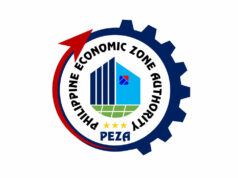THREE bills proposing to reform the real property tax system have been re-filed in the Senate.
Senate Bill Nos. 246, 519, 894, respectively authored by Senators Panfilo M. Lacson, Juan Miguel F. Zubiri and Ramon B. Revilla, Jr., proposed to establish a uniform valuation standard, in line with international standards.
All bills propose to develop and implement uniform valuation standards for use by appraisers and assessors in creating the Schedule of Market Values in their jurisdictions, for approval by the Secretary of Finance.
“At present, more than 23 government agencies undertake real property valuation with conflicting assessments. It is estimated that LGUs assess real property lower than the BIR (Bureau of Internal Revenue) by 13–94%,” Senate Majority Leader Zubiri said in the explanatory note of his bill.
He added that zonal values used by the BIR are lower that the values used by private appraisers.
Two of the bills also proposed to strengthen the Bureau of Local Government Finance by authorizing it to develop the valuation standards, jointly with the Bureau of Internal Revenue, and review Schedules of Market Values and recommend their approval by the Secretary of Finance.
The BLGF is to be tasked to formulate a program for the regular revision of schedules of market values every three to five years.
Mr. Zubiri’s version, meanwhile, proposes to create the National Valuation Authority, instead, to exercise the same functions.
The measure forms part of the administration’s comprehensive tax reform program (CTRP). It is also among the four packages outlined by President Rodrigo R. Duterte in his fourth State of the Nation Address.
Its counterpart, House Bill No. 4664, which will be known as the Real Property Valuation and Assessment Reform Act if passed, was approved by the House of Representatives on final reading Monday.
The House version proposes to adopt a market-based SMV as basis for local and national real property taxation.
The measure nearly hurdled the 17th Congress after securing third reading approval in the House of Representatives, but failed to make it out of the Senate Committee on Ways and Means before sessions adjourned last June 3.
Other remaining packages of the CTRP are proposals to reduce corporate income tax to 20% by 2029 from the current 30% and remove redundant fiscal incentives; increase excise tax on alcohol products, electronic cigarettes and other vapor products; and simplify the tax structure for financial investment instruments.
All said bills have been passed by the House on third and final reading; but remains pending in the Senate.
So far, tax reforms that have been enacted during the term of President Rodrigo R. Duterte are Republic Act No. 10963, or the Tax Reform for Acceleration and Inclusion Law, which slashed personal income tax and increased or added levies on several goods and services; RA 11213, the Tax Amnesty Act, which grants estate tax amnesty and amnesty on delinquent accounts left unpaid even after being given final assessment; and RA 11346, which will gradually increase excise tax on tobacco products to P60 per pack by 2023 from the current P35. — Charmaine A. Tadalan



